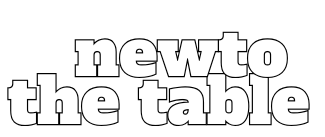As the housing market continues to twist and turn like a rollercoaster, many are left wondering whether to rent or buy in 2024. It’s a dilemma that feels like choosing between a cozy blanket fort and a lavish castle. Renting offers flexibility and fewer responsibilities, while buying promises stability and the thrill of home improvement projects that could go hilariously wrong.
Table of Contents
ToggleOverview of Renting vs Buying 2024
The housing market in 2024 presents significant dilemmas for prospective renters and buyers. Renting typically offers more flexibility, allowing individuals to adjust their living situations with ease. Financial commitment remains lower for renters; they avoid hefty down payments and ongoing maintenance costs.
In contrast, buying a home provides long-term stability. Homeownership builds equity over time, which can lead to financial security. Additionally, homeowners enjoy the freedom to customize their living spaces without landlord restrictions.
Potential challenges accompany each option. Renters face the possibility of rising rental rates, which can strain budgets. Buyers, however, may encounter difficulties such as market volatility and unexpected repair costs. Current mortgage rates and property values impact affordability; thus, individuals must evaluate their financial situations carefully.
Data shows a growing trend: as of 2024, 35% of individuals prefer renting due to economic uncertainty. Conversely, 45% indicate a desire to own a home, citing long-term investment benefits. The choice between renting and buying centers on personal goals, financial capabilities, and lifestyle preferences.
Considering these factors is crucial. Prospective renters should assess their short-term needs, while buyers ought to evaluate long-term aspirations. Ultimately, understanding the current market climate and individual priorities can lead to informed decisions.
Pros and Cons of Renting

Renting offers distinct advantages and challenges that renters need to weigh carefully. The decision to rent versus buy often centers on personal circumstances and financial situations.
Flexibility and Mobility
Renting provides significant flexibility, allowing individuals to relocate quickly for job opportunities or changes in life circumstances. Many renters enjoy low commitments, as lease agreements typically last from six months to a year. This transient lifestyle suits young professionals or those exploring new cities. Shifting housing needs can easily be met without the constraints of homeownership. Additionally, renters don’t need to engage in long-term home maintenance, making spontaneous moves more feasible.
Financial Considerations
Renters face different financial implications compared to homeowners. Renting often requires a smaller upfront investment, typically just first month’s rent and a security deposit. Many renters avoid large mortgages and the associated interest rates. However, rising rental rates in 2024 pose a challenge, straining budgets for many. Data indicates that 35% of individuals prefer renting largely due to financial flexibility. Compared to owning, renters experience a lack of equity build-up, meaning they don’t benefit from property appreciation. Considering these factors is crucial for informed financial decisions.
Pros and Cons of Buying
Buying a home presents both advantages and challenges. Understanding these aspects helps prospective buyers make informed decisions.
Long-Term Investment
Homeownership provides a robust long-term investment opportunity. Over time, property values generally appreciate, leading to equity growth for homeowners. Data indicates that 45% of individuals desire homeownership for its potential investment benefits, highlighting the allure of building wealth. Homeowners can leverage this equity for future financial needs, such as funding education or starting a business. Real estate typically performs better than many short-term investment options, offering stability amidst market fluctuations.
Maintenance Responsibilities
Owning a home incurs various maintenance responsibilities. Homeowners assume costs for repairs, landscaping, and routine upkeep, which requires planning and budgeting. Unlike renters, who usually call landlords for repairs, homeowners must manage these tasks themselves. This responsibility can be a significant advantage for those who enjoy home improvement projects and personalizing their living space. Conversely, unplanned repairs may result in financial strain, especially if major systems, like roofing or heating, require immediate attention. Understanding these responsibilities allows buyers to prepare adequately for homeownership.
Current Market Trends in 2024
2024 reveals distinct trends in the housing market that influence decisions on renting versus buying. Economic variables, mortgage rates, and property values shape individual choices in significant ways.
Housing Market Analysis
Property values exhibit fluctuations, with a notable trend toward increased prices in urban areas. Approximately 65% of homeowners report appreciation in home value, encouraging potential buyers to act sooner. Market volatility threatens long-term planning, prompting some to hesitate before committing. Interest rates hover around an average of 7%, impacting overall affordability for buyers. This dynamic pushes some individuals toward renting, valuing short-term flexibility over long-term investments. Local markets may vary, so potential buyers should research specific regions to understand the unique conditions affecting home prices.
Rental Market Insights
Rising rental rates dominate the current landscape, with an average increase of 10% across major cities. Over 35% of renters express concerns about affordability as their budgets tighten. Demand for rental properties remains high, fueled by lifestyle changes and economic uncertainty. Many renters prioritize access to amenities and proximity to work, shaping their choices. Some landlords may offer incentives to retain tenants, while others face higher vacancy rates. Shift in rental demand highlights the importance of flexibility, especially among younger professionals seeking career opportunities.
Making the Right Choice for You
Choosing between renting and buying in 2024 involves assessing personal circumstances and financial stability. Flexibility remains a primary advantage for renters, who can relocate quickly in response to job opportunities or changing lifestyles. The average rental increase of 10% across major cities contributes to rising concerns about affordability, leading many to weigh their options carefully.
Homeownership offers a chance to build equity over time, capitalizing on the general appreciation of property values. Many homeowners report home value increases, with 65% noting appreciation in urban areas. Individuals focused on long-term investment benefits often lean towards buying, valuing customization freedom without landlord interference.
Expenses associated with homeownership, including maintenance and repairs, require planning. Some people enjoy making improvements to their homes; however, unexpected costs can lead to financial strain. Homeowners often face a mortgage interest rate of around 7%, influencing overall affordability and decision-making processes.
Current market trends highlight economic variables affecting both renting and buying decisions. Individuals hesitant about market volatility may prefer the short-term flexibility renting provides. Many renters, facing annual rental increases, experience budget strain, highlighting the growing preference for renting seen by 35% of individuals.
Ultimately, whether to rent or buy depends on personal goals and financial capabilities. Prioritizing individual lifestyle needs and current market conditions is vital for making an informed choice. Analyzing these factors leads to a better understanding of what aligns with one’s objectives in the evolving housing landscape of 2024.
Navigating the decision to rent or buy in 2024 requires careful consideration of personal circumstances and financial situations. With rising rental rates and fluctuating property values individuals must weigh the benefits of flexibility against the long-term investment potential of homeownership.
While renting offers the advantage of lower upfront costs and fewer responsibilities the challenge of increasing rents can strain budgets. On the other hand buying a home provides opportunities for equity growth and customization but comes with maintenance costs and market uncertainties.
Ultimately the best choice depends on individual goals and lifestyle preferences. Understanding the current market dynamics is crucial for making an informed decision that aligns with one’s financial capabilities and future aspirations.








